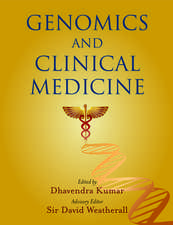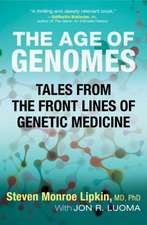The Molecular Biology of Chronic Heart Failure
Autor Dhavendra Kumaren Limba Engleză Paperback – 31 ian 2013
Preț: 278.01 lei
Nou
Puncte Express: 417
Preț estimativ în valută:
53.20€ • 55.34$ • 43.92£
53.20€ • 55.34$ • 43.92£
Carte tipărită la comandă
Livrare economică 14-28 aprilie
Preluare comenzi: 021 569.72.76
Specificații
ISBN-13: 9781615045563
ISBN-10: 1615045562
Pagini: 90
Dimensiuni: 191 x 235 x 5 mm
Greutate: 0.17 kg
Editura: Morgan & Claypool
ISBN-10: 1615045562
Pagini: 90
Dimensiuni: 191 x 235 x 5 mm
Greutate: 0.17 kg
Editura: Morgan & Claypool















